A metallic rod completes its circuit as shown in the figure. The circuit is normal to a magnetic field of tesla. If the resistances of the rod is the force required to move the rod with a constant velocity of is-
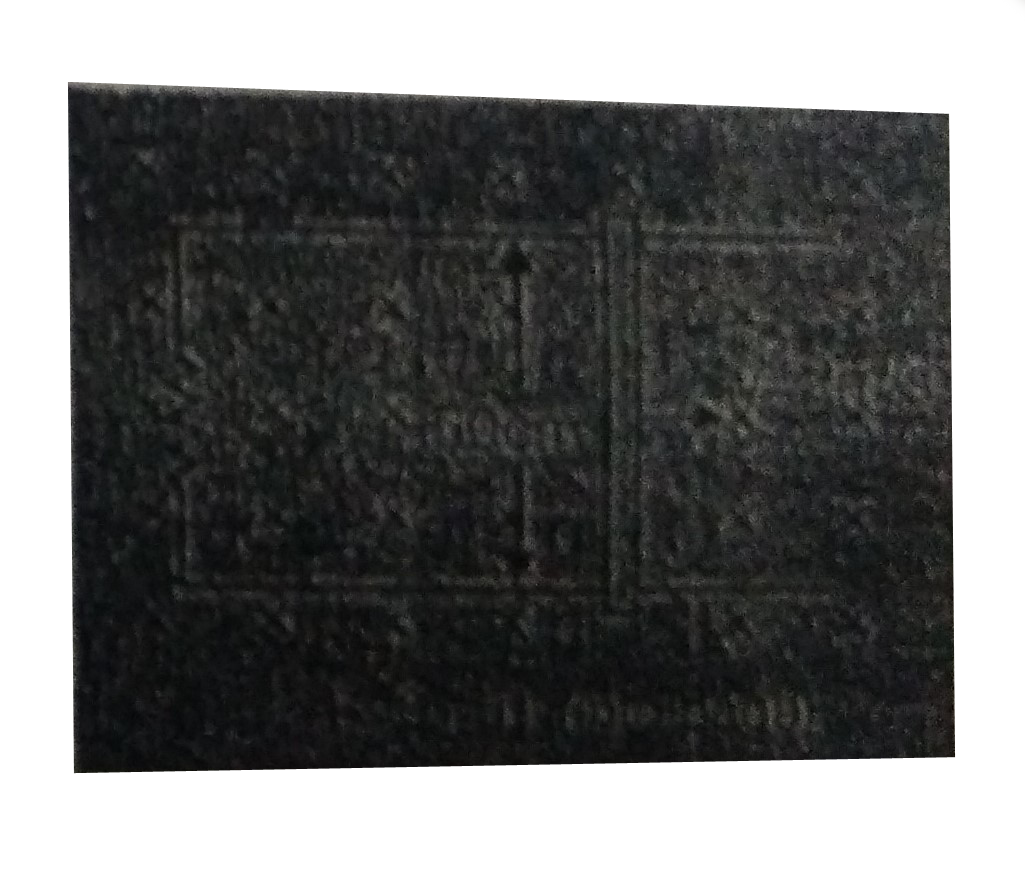
The correct Answer is:A
Step by step video, text & image solution for A metallic rod completes its circuit as shown in the figure. The circuit is normal to a magnetic field of B=0.15 tesla. If the resistances of the rod is 3Omega the force required to move the rod with a constant velocity of 2m//sec is- by Physics experts to help you in doubts & scoring excellent marks in Class 12 exams.
Topper's Solved these Questions
- BOOK - MOTIONCHAPTER - ELECTRO MAGNETIC INDUCTIONEXERCISE - EXERCISE-172videos
ELECTRO MAGNETIC INDUCTION
- BOOK - MOTIONCHAPTER - ELECTRO MAGNETIC INDUCTIONEXERCISE - EXERCISE-2 (Objective problems (Analytical questions))70videos
ELECTRO MAGNETIC INDUCTION
- BOOK - MOTIONCHAPTER - ELECTRO MAGNETIC INDUCTIONEXERCISE - QUESTIONS FOR PRACTICE (Type- IV: Questions based on induced Parameters :-)10videos
ELECTRO MAGNETIC INDUCTION
- BOOK - MOTIONCHAPTER - Electrical Instrument EXERCISE - EXERCISE -316videos
Electrical Instrument
- BOOK - MOTIONCHAPTER - ELECTRO MAGNETIC WAVES EXERCISE - EXERCISE - 3 (SECTION - B)8videos
ELECTRO MAGNETIC WAVES
Similar Questions
A 0.5m long metal rod PQ completes the circuit as shown in the figure. The area of the circuit is perpendicular to the magnetic field of flux density 0.15T. If the resistance of the total circuit is 3Ω calculate the force needed to move the rod in the direction as indicated with a constant speed of 2ms−1
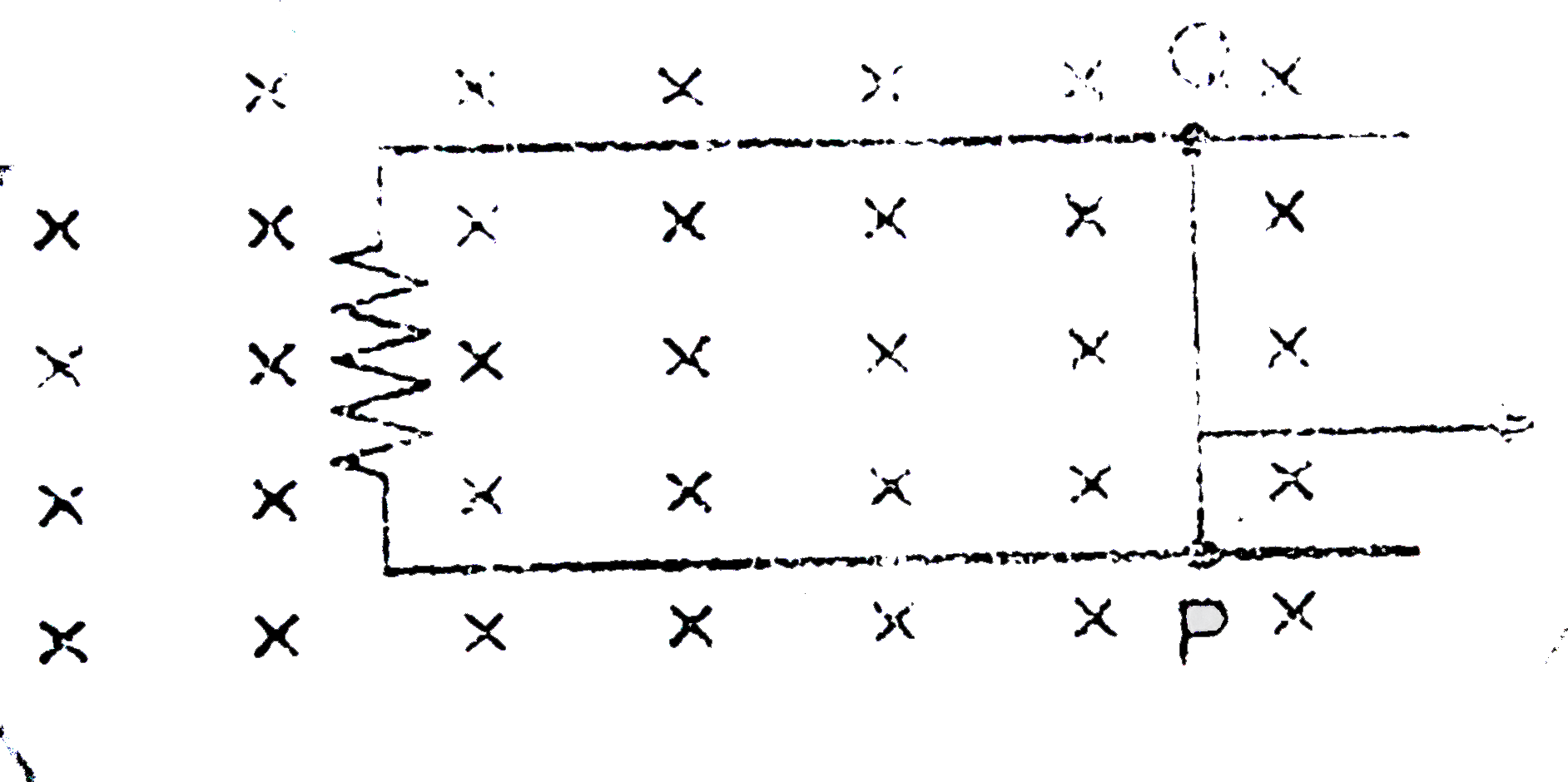 View Solution
View SolutionAs shown in figure, a metal rod completes the circuit. The circuit area is perpendicular to a magnetic field with B=0.15T. If the resistance of the total circuit is 3Ω, how large a force is needed to move the rod as indicated with a constant speed of 2 m/s?
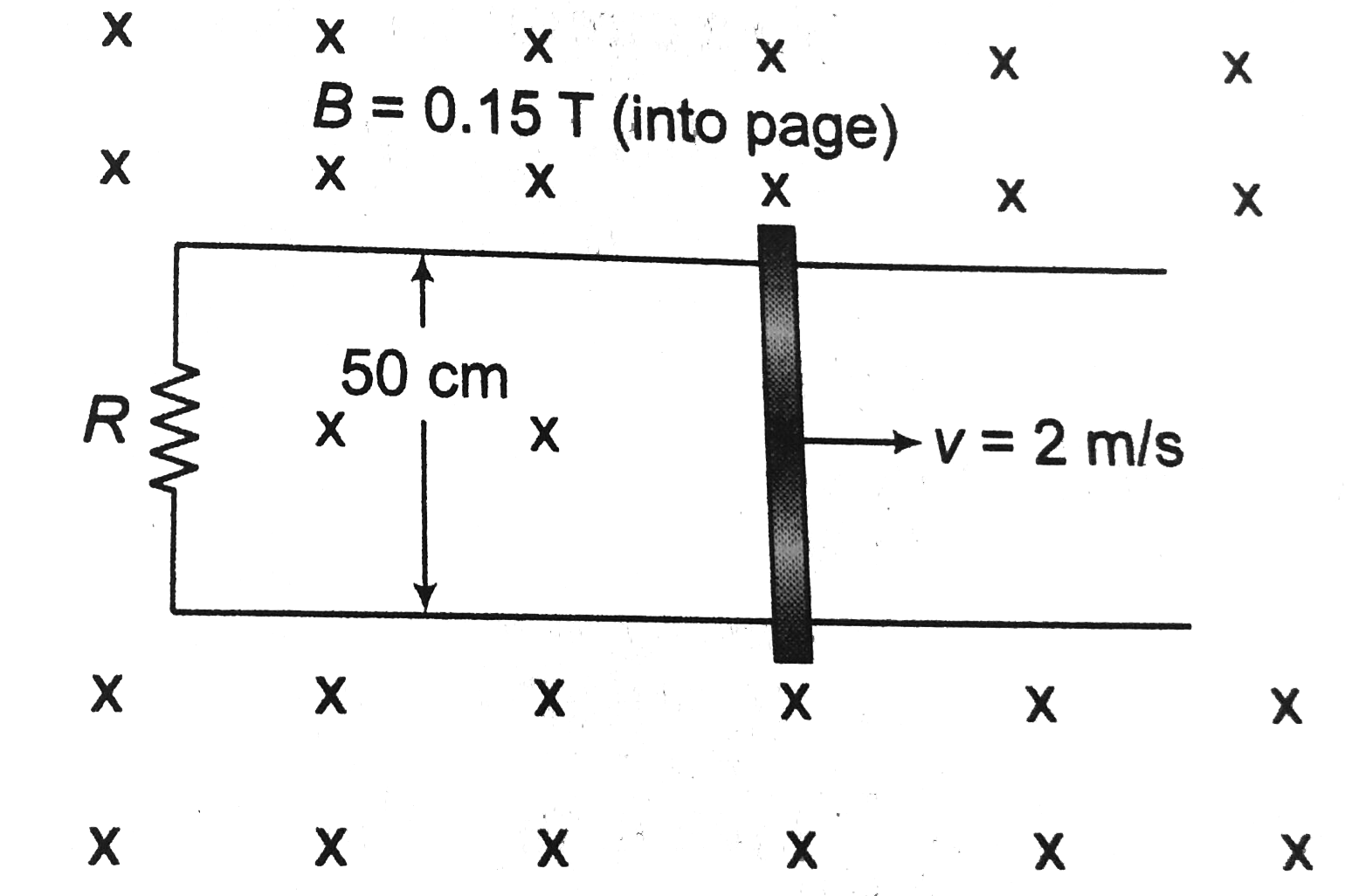 View Solution
View Solution
Knowledge Check
- Question 1 - Select One
A metallic rod completes its circuit as shown in the figure. The circuit is normal to a magnetic field of B=0.15 tesla. If the resistances of the rod is 3Ω the force required to move the rod with a constant velocity of 2m/sec is-
 A3.75×10−3NB3.75×10−2NC3.75×102ND3.75×10−4N
A3.75×10−3NB3.75×10−2NC3.75×102ND3.75×10−4N - Question 2 - Select One
As shown in figure, a metal rod completes the circuit. The circuit area is perpendicular to a magnetic field with B=0.15T. If the resistance of the total circuit is 3Ω, how large a force is needed to move the rod as indicated with a constant speed of 2 m/s?
 A3.75×10−3NB3.75×10−2NC3.75×102ND3.75×10−4
A3.75×10−3NB3.75×10−2NC3.75×102ND3.75×10−4 - Question 3 - Select One
A metallic rod of length L rotates at an angular speed ω, normal to a uniform magnetic field. If the resitance of rod is R the heat dissipated is:
A14B2L4ω2tRB12B2L2ωtRC14B2L2ω2t2RD14BL2ω4tR
A 0.5 m long metal rod PQ completes the circuit as shown in the Fig. 6.47. The area of the circuit is perpendicular to the magnetic field of flux density 0.15 T. If the resistance of the total circuit is 3Ω, calculate the force needed to move the rod in the direction as indicated with a constant speed of 2ms−1.
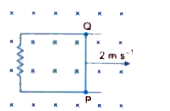 View Solution
View SolutionA metal rod of length l cuts across a uniform magnetic field B with a velocity v. If the resistance of the circuit of which the rod forms a part is r, then the force required to move the rod is
View SolutionA metallic rod of length l is rotated at a constant angular speed ω, normal to a uniform magnetic field B. Derive an expression for the current induced in the rod, if the resistance of the rod is R.
View SolutionA conducting rod of length l is moving in a transverse magnetic field of strength B with veocity v. The resistance of the rod is R. The current in the rod is
View SolutionFigure shows a conducting rod of negligible resistance that can slide on smooth U-shaped rail made of wire of resistance 1Ω/m.Position of the conducting rod at t=0 is shown.A time t dependent magnetic field B=2t Tesla is switched on at t=0.
Following situation of the previous question, the magnitude of the force required to move the conducting rod at constant speed 5cm/s at the same instant t=2s, is equal to
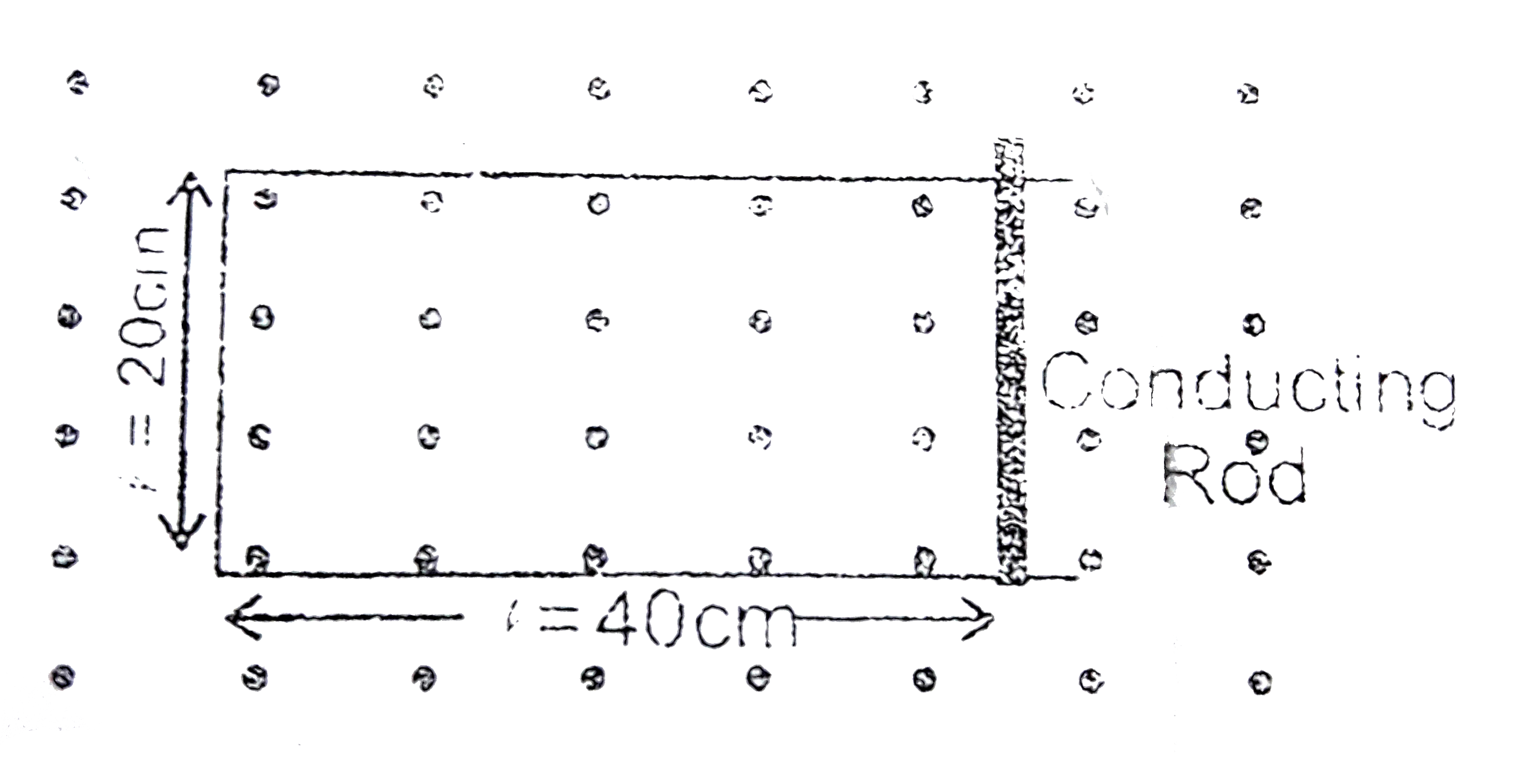 View Solution
View Solution

